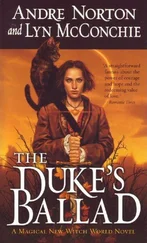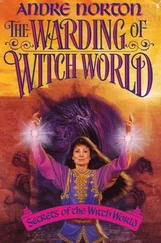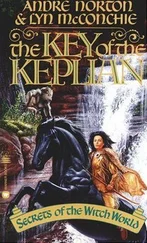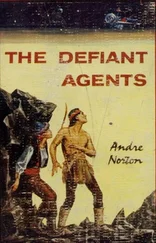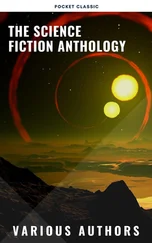Bee found him at his apartment the fourth morning. She seemed much more relaxed. “Tony hated useless grief,” she said. “I had to come here, Granny. I had to know that we might see the end of all this.”
“Yes.” Grant still felt a vague shame. “We’ll have to stop Slag short, before he adds any more victims.”
“Oh, it’s more than that! It’s the people, too, and the knowledge that more Slags may appear. If all the matches suddenly....” She broke off, frowning, as if uncertain whether to continue. “You see, Granny, Tony decided to play because of that. It wasn’t even the charities, really. The people distrust you. Not just because you were wrong, but because they are suspicious of any probing into the powers of mind. They prefer fantasy to scientific hypothesis, and now Slag’s triumphs....” She faltered, and unhappily twisted her face away.
“But Tony could have crushed Slag, too.”
“You know that was different. He had Slag hypnotized first. But Tony was awake when the ball struck!”
“You’re right, Bee. Frankly, I don’t know what the answer could be. I’m working on the core of the ball. There is a chance—”
“I’m sure it was something else! Granny, have you thought of the screen? There must have been a leak, or a failure. Think of that crowd, hoping for their hero. Suppose they subconsciously influenced the sphere, directed it at Tony.”
He thought of the mob’s reaction when Slag was helpless, and kept silent. It would be cruel to blast her one hope with nothing to offer in exchange.
“You think I’m wrong, but what else would it be? The ball couldn’t kill Tony by itself.” Then she was in tears. “I should have been there to stop it. He wouldn’t take a second—I begged him to let me—and I would have sensed any outside influence!”
Grant recognized the guilt feelings she was suffering from. He tried to give comfort, but suddenly she was a woman, proud and independent, and would not stay. Only at the door for one moment did she turn appealingly to him.
“Granny, you’re not going to play Slag!”
“Do you want me to? Should I obey the roar of the mob? And look!” He gestured at one of the papers, where a center-page box proclaimed, ‘Commissioner Rules Out Lane-Slag Match.’ “At thirty-seven they say I’m too old to play.”
“Don’t do it, Grant.” He felt her conflicting, torn emotions. “Yet, the funny thing is, I don’t think I could live if they allow Slag to go on and on.”
Grant’s apartment was ill-equipped for working with micro-organisms. So, although preliminary study opened up no encouraging line of experimentation, next day he transferred his work to the university laboratories. He found his colleagues friendly—one had cheerfully handled Grant’s lectures during his absence—but reserved, as if they suspected him to be guilty of some terrible sin, yet hoped he might prove himself innocent.
Barker, the bio-chemist, listened to his theory of the probability of change in the nerve center of the ball. “I have not worked with these cultures,” he said. “You claim they are artificially produced solely to provide a focal receptor for the controlling minds. Are the cells non-reproductive?”
“Yes. You see, the structure must be stable. Any mind can provide the necessary power to move light objects short distances, but focusing that power is the difficulty. Hence the sensitive core. The operator can sense where to direct his will.”
Barker reflected a moment. “So the culture is purely static—doesn’t even amplify the influence. In that case, I can only visualize such changes as natural radiation might bring about. No hope there for a recurrent pattern of change.”
“Learning ability—acquisition of power to act voluntarily—I thought the answer might be in that.”
“We’ll see. Might as well begin there, anyway. Get us a few of the balls, Lane, and I’m sure the staff will gladly try to help out.”
That evening Grant walked onto the court of the Colliseum and was made certain of the city’s anger toward him. Bee’s idea was worth testing, and he had brought with him some student telepaths, but the instant he appeared the crowd rose in a storm of fury. When the announcer requested spectators to direct the ball at Grant, their wrath gave way to cheers, and they concentrated hopefully on crushing him. But the screen held, the telepaths sensed no invading influence as Grant whirled the ball about the court, until in disgust he signaled for the screen to be deactivated.
Instantly the will of the crowd took hold. The sphere jerked erratically until concerted influence steadied it opposite Grant. Then it flashed into motion, a heavy, deadly missile, with all the mind power of a mob driving it murderously across the court at him.
He stopped it easily, six inches away.
Barker said, “No use seeking further. We may not know everything living organisms can do, but we can certainly tell what is beyond their power. The tests are conclusive.”
Lorms, the behaviorist, nodded his head.
For just an instant Grant felt confused, helpless. His original arguments for psychosport were proved valid, but the killings became even more inexplicable—they were logically impossible! And, somehow, that made him the criminal.
That left him only one thing to do.
It was humiliating to accept such a solution to his personal problem. He thought of Bee Anthony and nearly turned back. Only since the tragedy had he realized how changed was their relationship—and how important she was to him. Would she scorn his action, think him a slave to public pressure? Probably, but Grant forced his steps onward.
In the lobby of the Page-Horton, Bee caught him by the arm. “Since when,” she asked, “do you walk grimly past your friends?... No, Grant. Don’t bother to think up a story. I know where you are going.”
He wanted to chase her away—and to pull her close to him. But she glanced up and laughed. “You look so perplexed and silly. Professor Lorms called me, and of course I knew what you’d do.”
“Do you think,” said Grant, “that I should, Bee? Is it right?”
“Darling, fighting results from frustration and breeds even more frustration and anger. But somehow men get cornered until—well, they have to. Not Tony. He was a gay fool, tilting at windmills. Oh, Grant! I know you’re wrong, but you’re right, too, and inside I’m so glad!”
He wanted to erase the worry behind her gladness, to smother it with reassurance. They went up together to Slag’s suite. Teagle was at the door. “Glad to see you, Mahomet,” he said to Grant. “The contract’s all ready to sign. I guess you’ll want your cut for charity, eh?”
“You won’t, I suppose.”
“Not on your life. Excuse the double meaning, Miss.” He smirked at Bee. “I ask you, who’s going to match us after we knock this one off?”
Slag stared glumly from a chair, not even removing his hand from the glass beside him. “Practicing,” he said. “Getting into shape for our tussle, Doc. Like Teagle said, you had to come across.”
Grant took the papers from the manager, filled in the blanks and signed.
“Don’t talk much, this Doc Lane,” said Slag. “Should I show him, Teagle?”
“Sure thing. Watch this practice, Doc.”
The big man concentrated on the amber bottle beside him. Slowly, jerkily, it lifted—one inch, then two. Slag relaxed, and watched it ring as it fell to the table. “My job when I retire,” he said. “Got to pour it right into the glass. Pretty hot, eh?”
Grant gave no warning. The man’s trousers were deluged as the glass shattered in his hand. He leaped up cursing, and then moved quickly and with ugly purpose toward his visitors.
Читать дальше

